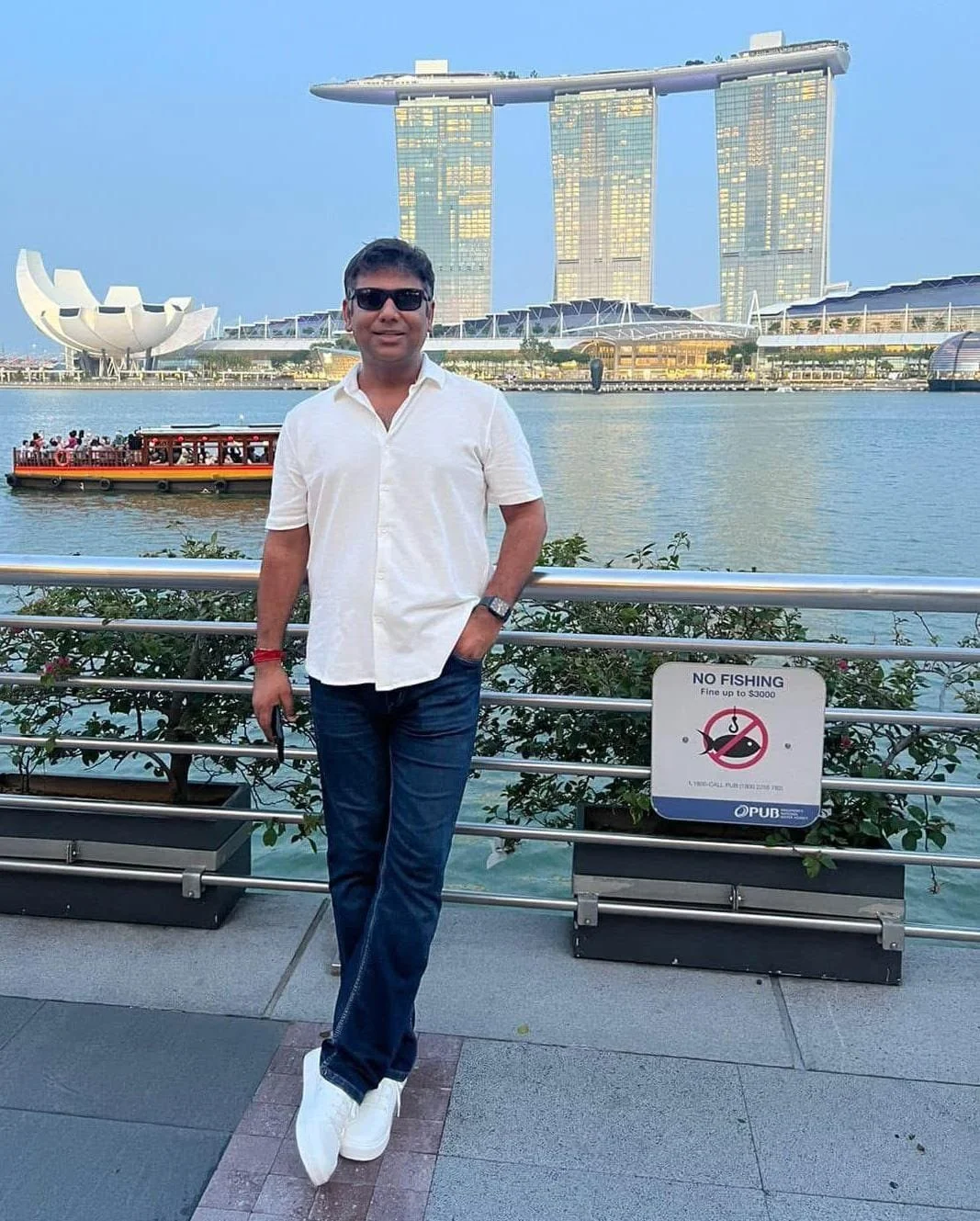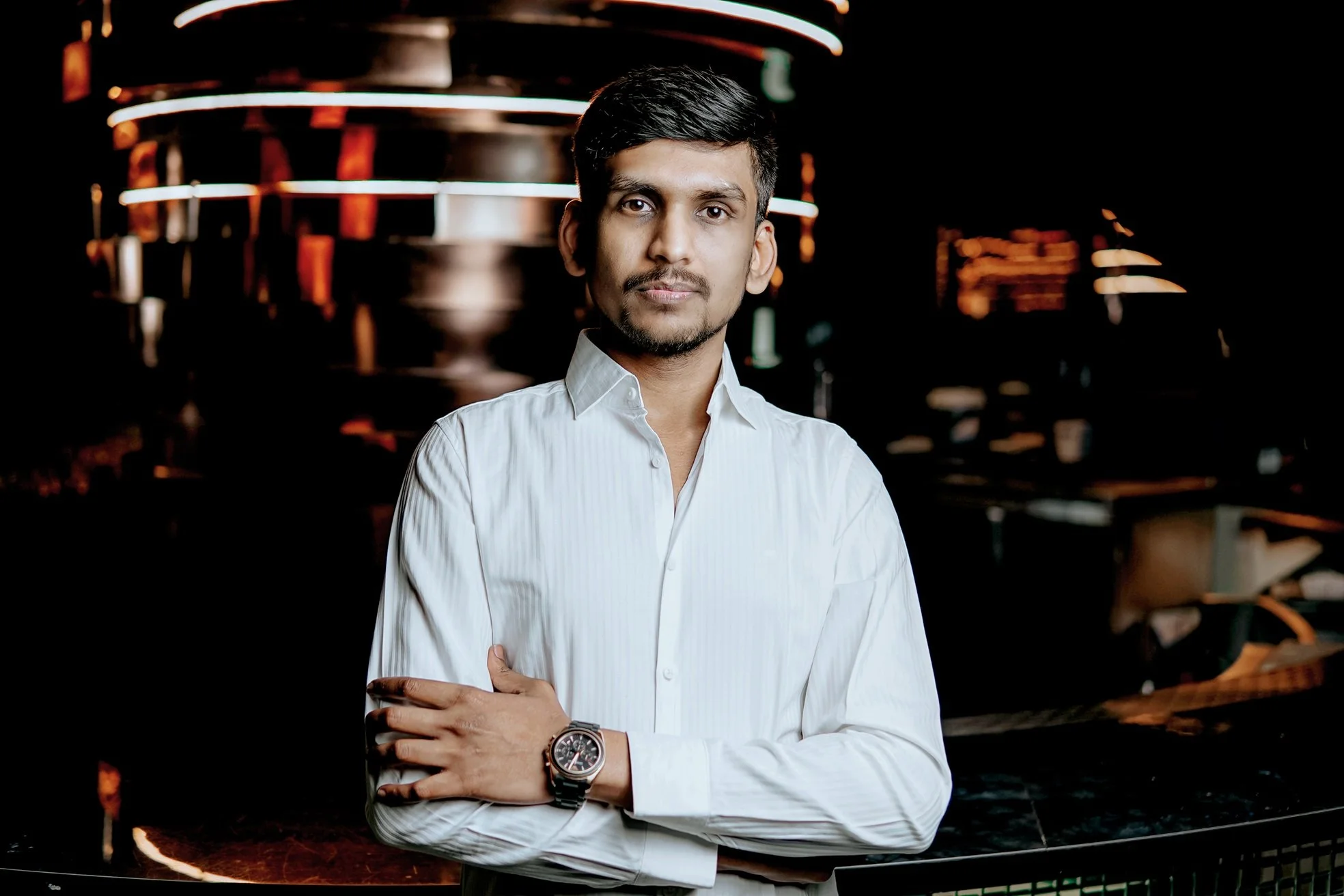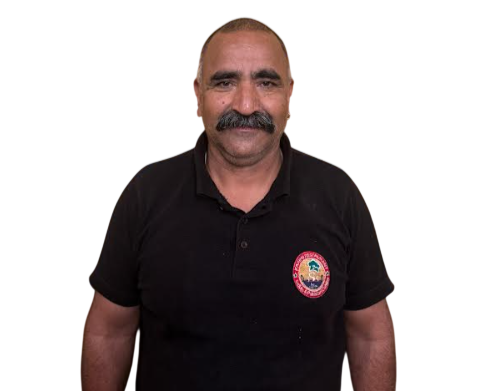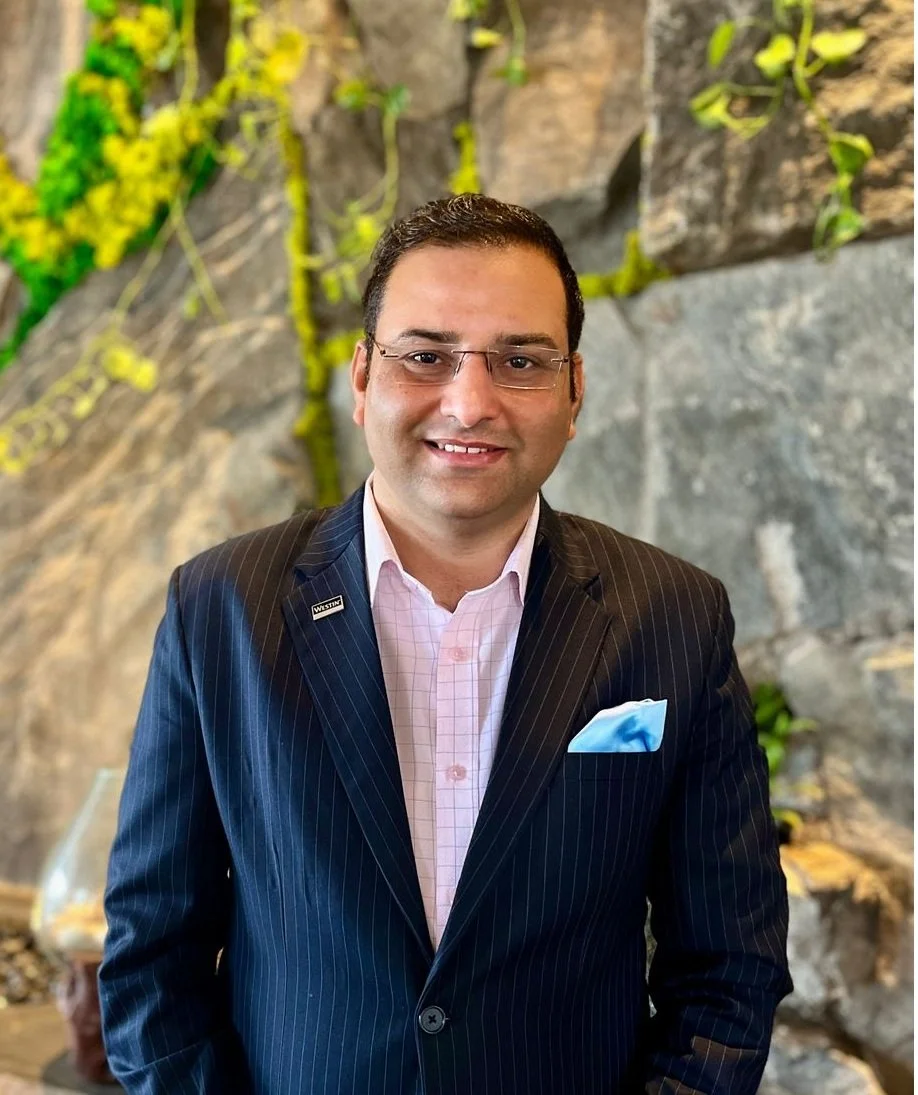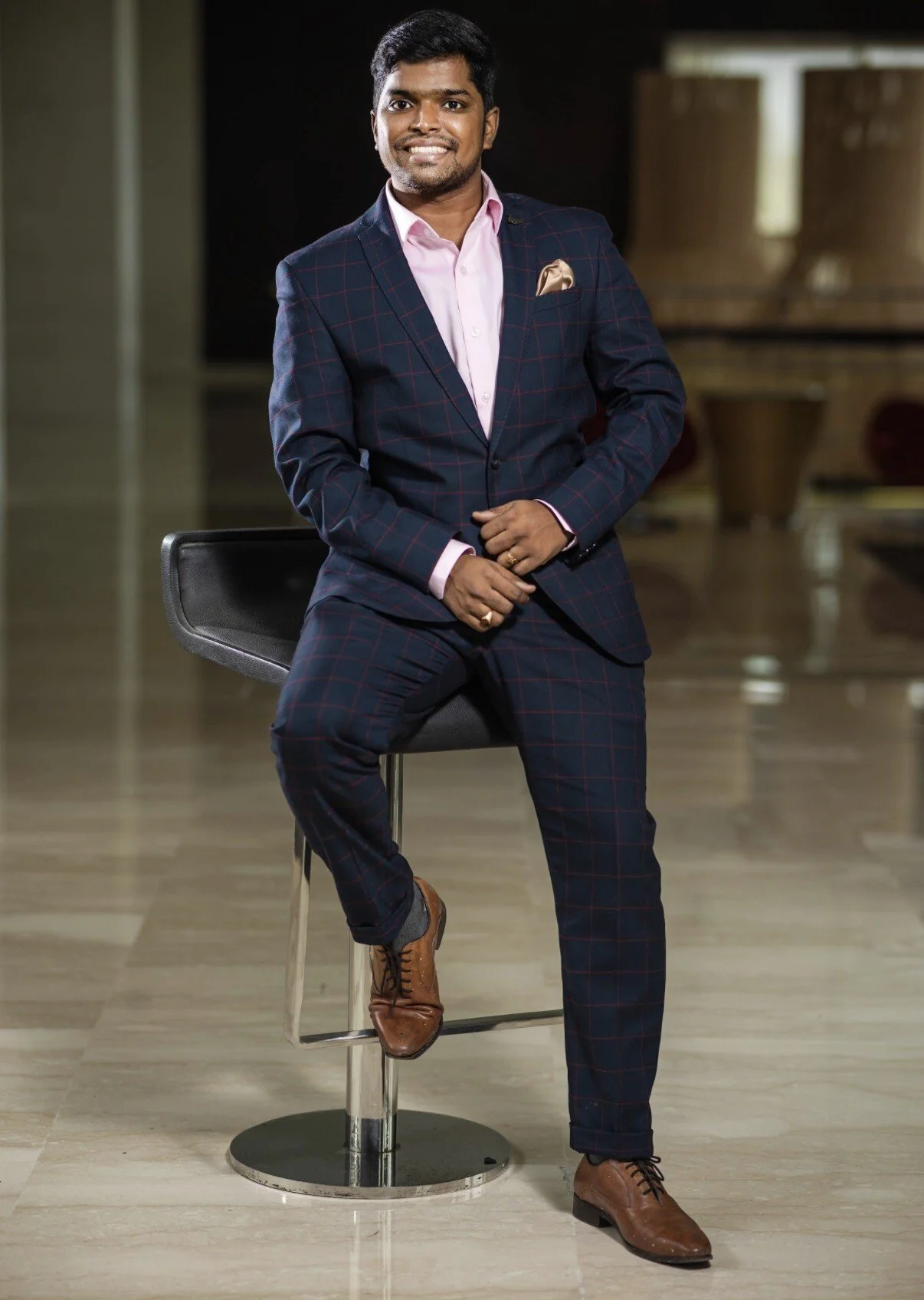Exclusive Interview | Navneet Nagpal, Principal Consultant, Spectra Hospitality Consulting Services
/“Hospitality today is undergoing a significant transformation from product-centric to emotionally resonant experiences. Guests no longer seek mere accommodation; they desire belonging, identity, and emotional connection.”
Let’s start with your journey. What inspired you to work at the intersection of branding, hospitality, and storytelling?
My journey began over 25 years ago, driven by a deep curiosity and passion for experiences that linger long after the visit ends. Early on, I recognized hospitality not merely as an industry, but as a canvas for storytelling and meaningful connections. My inspiration stems from seeing possibilities where others see problems—transforming underperforming properties into vibrant, thriving destinations. Every property, whether a boutique hotel in Goa or a luxury resort in the hills, has a unique story waiting to unfold. Blending branding, hospitality, and storytelling has always allowed me to craft memorable experiences that resonate emotionally with guests and communities alike.
You’ve helped shape some powerful hospitality brands. Share some stories. What makes a hospitality brand truly unforgettable?
Truly unforgettable hospitality brands are those whose identities are deeply rooted in authenticity, environmental consciousness, and culturally immersive storytelling. At Shatam Jeeva, for example, we set a bold precedent by creating a boutique wellness retreat without cutting a single tree, meticulously designing around the natural landscape. Despite its intentionally limited inventory, Shatam Jeeva flourished, becoming a prime destination precisely because it offered guests something exceptionally rare—a luxury experience harmoniously integrated with nature.
Another unique story unfolded at Baale Goa, where we consciously moved beyond typical resort offerings to deeply embed Goa’s vibrant heritage into every guest experience. From design elements inspired by traditional Goan homes to personalized cultural activities, Baale became more than just a place to stay—it became a journey into the essence of Goa itself, cultivating lasting emotional connections.
With Amaranth Goa, our latest endeavour, we continued this philosophy by creating spaces and experiences that seamlessly blend contemporary luxury with the tranquillity of South Goa. Guests don’t just visit Amaranth; they enter a thoughtfully curated narrative where every detail speaks to comfort, elegance, and local authenticity.
One of your blog posts, “I don’t think I want to build a hotel anymore,” went viral. What was the backstory behind that moment—and what kind of reactions did it get?
That post emerged from a real-life turning point while working on a significant project. Initially, it seemed like a conventional hotel, but as I delved deeper, I realized that merely constructing a building wasn’t enough. The post became a heartfelt reflection, emphasizing that hospitality isn’t about infrastructure alone, but the experiences and emotional connections fostered within. The reaction was extraordinary—thousands resonated, industry leaders shared their own similar realizations, and it opened dialogues about redefining hospitality, making me feel genuinely connected to a wider community questioning and redefining our industry’s core purpose.
That piece resonated with thousands. Do you think the definition of hospitality is shifting? From product to emotion? From guest to member?
Absolutely, and I’ve experienced this firsthand. Hospitality today is undergoing a significant transformation from product-centric to emotionally resonant experiences. Guests no longer seek mere accommodation; they desire belonging, identity, and emotional connection. This shift—from seeing people as transient guests to valued community members—is central to how hospitality brands can remain relevant and meaningful. Brands must now craft experiences that foster emotional bonds, creating lasting impressions and loyalty beyond transactional interactions.
Your writing is reflective and deeply human. Do you follow a content strategy or write when inspiration strikes?
My writing is born from authenticity—spontaneous yet deeply reflective. Years of engaging conversations with guests, colleagues, industry leaders, and even chance encounters fuel my insights. I don’t adhere to a rigid content calendar; instead, inspiration arises from lived experiences, human stories, and the daily complexities of hospitality. Every article or post is simply a genuine reflection of something real, meaningful, and impactful in my professional journey and personal observations.
What’s your reading routine like? Any writers or thinkers who’ve shaped your views on hospitality or creativity?
Reading is integral to my daily routine. I begin every day with newspapers, absorbing diverse global perspectives. Beyond that, I regularly explore works by thinkers like Danny Meyer, whose hospitality ethos of ‘enlightened hospitality’ profoundly impacted my understanding of service. Seth Godin’s insights into creativity and marketing have shaped how I approach brand storytelling and innovation. These perspectives have reinforced my belief that hospitality is fundamentally about empathy, authenticity, and creating genuine value for others.
How do you work with hospitality businesses to craft a powerful narrative? What does a brand need to unlearn to truly connect with its audience?
Crafting powerful narratives starts by challenging existing assumptions. Brands must unlearn the belief that narratives should purely be aspirational. Instead, they must embrace authenticity and vulnerability, speaking genuinely about their identity, struggles, and triumphs. When working with hospitality businesses, I begin by identifying the heart of their story—often hidden beneath marketing jargon—and guide them in expressing that essence clearly and emotionally. Authentic stories build trust, connection, and long-term loyalty far more effectively than carefully crafted but superficial marketing messages.
What’s one belief about hospitality you wish more professionals challenged or rethought? Something that’s accepted—but maybe shouldn’t be.
I wish more hospitality professionals would rethink the idea that luxury and exceptional service necessarily mean extravagant opulence. Real luxury today is less about grandeur and more about meaningful simplicity, personalized experiences, and sustainability. It’s about genuinely understanding and anticipating guests’ emotional and practical needs.
Challenging this traditional belief could redefine luxury hospitality, making it more authentic, inclusive, and sustainable, truly aligned with modern guest values.






